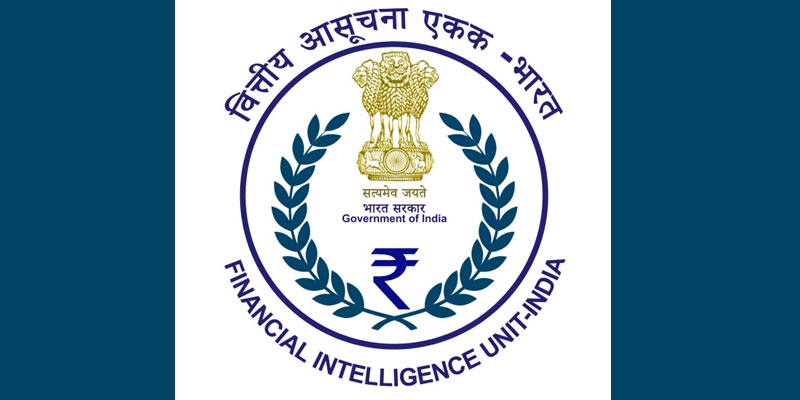- India
- Jan 07
What is Financial Intelligence Unit?
• Financial Intelligence Unit-India (FIU-IND) and the Insurance Regulatory and Development Authority of India (IRDAI) signed a Memorandum of Understanding (MoU) for sharing of intelligence and information to check money laundering.
• The MoU was signed as part of continued coordinated efforts in effective implementation of requirements of the Prevention of Money Laundering Act and Rules.
Highlights of the MoU:
• As per the agreement, FIU-IND and IRDAI will cooperate in the areas of mutual interest, including sharing of relevant intelligence and information, available in their respective databases.
• Laying down procedure and manner in which the regulated entities/reporting entities report to FIU-IND under the PML Rules and conducting outreach and training for regulated entities as per the MoU.
• Assessment of Anti-Money Laundering/Combating Financing of Terrorism (AML/CFT) risks and vulnerabilities in the insurance sector and upgradation of AML/CFT skills in the entities regulated by IRDAI will be undertaken following the agreement.
• The MoU also envisages identification of red flag indicators for Suspicious Transaction Reports (STRs) in the insurance sector.
What is IRDAI?
• The Insurance Regulatory and Development Authority (IRDA) was incorporated as a statutory body in April 2000.
• IRDAI was formed under an Act of Parliament — Insurance Regulatory and Development Authority Act, 1999 (IRDA Act, 1999) — for overall supervision and development of the Insurance sector in India.
• The powers and functions of the Authority are laid down in the IRDA Act, 1999 and Insurance Act, 1938.
• The Insurance Act, 1938 is the principal Act governing the Insurance sector in India.
• It provides the powers to IRDAI to frame regulations which lay down the regulatory framework for supervision of the entities operating in the Insurance sector.
The key objectives of the IRDAI include:
i) Protecting the interest of policyholders.
ii) Speedy and orderly growth of the insurance industry.
iii) Speedy settlement of genuine claims.
iv) Effective grievance redressal mechanism.
v) Promoting fairness, transparency and orderly conduct in financial markets dealing with insurance.
vi) Prudential regulation while ensuring the financial security of the insurance market.
Financial Intelligence Units (FIUs)
• Financial Intelligence Units (FIUs) are specialised government agencies created to act as an interface between the financial sector and law enforcement agencies for collecting, analysing and disseminating information, particularly about suspicious financial transactions, pertaining to money laundering, financing of terrorism and proliferation financing.
• FIUs are also responsible for disseminating analysis results.
• An FIU should obtain additional information from reporting entities and have timely access to required financial, administrative, and law enforcement information to undertake its functions properly.
A few major considerations shape an FIU’s creation:
i) Anti-money laundering and counter-terrorism financing laws.
ii) Existing law enforcement.
iii) The need for an authority that will receive, assess, and share financial information.
• FIUs have to conform to international standards, particularly the recommendations of the Financial Action Task Force (FATF).
• The Egmont Group is the international organisation for stimulating cooperation amongst FIUs across the globe.
Financial Intelligence Unit – India
• Financial Intelligence Unit–India (FIU-IND) was established by the government in November 2004 as the central national agency responsible for receiving, processing, analysing and disseminating information relating to suspect financial transactions.
• FIU-IND is also responsible for coordinating and strengthening efforts of national and international intelligence, investigation and enforcement agencies in pursuing the global efforts against money laundering and financing of terrorism.
• FIU-IND is an independent body reporting directly to the Economic Intelligence Council (EIC) headed by the Union Finance Minister.
• FIU-IND is headed by the director, who is an officer of the rank of additional secretary to the government of India. It is an administrative FIU and does not investigate cases.
FIU-IND is a member of following International groups to partner with other countries in countering money laundering, terror and proliferation financing.
i) Financial Action Task Force
ii) Eurasian Group on Combating Money Laundering (EAG)
iii) Asia / Pacific Group On Money Laundering (APG)
iv) Egmont Group.
Functions of FIU-IND:
• Collection of Information: Act as the central reception point for receiving Cash Transaction reports (CTRs), Non-Profit Organisation Transaction Report(NTRs), Cross Border Wire Transfer Reports (CBWTRs), Reports on Purchase or Sale of Immovable Property (IPRs) and Suspicious Transaction Reports (STRs) from various reporting entities.
• Analysis of Information: Analyse received information in order to uncover patterns of transactions suggesting suspicion of money laundering and related crimes.
• Sharing of Information: Share information with national intelligence/law enforcement agencies, national regulatory authorities and foreign Financial Intelligence Units.
• Act as Central Repository: Establish and maintain national data base on the basis of reports received from reporting entities.
• Coordination: Coordinate and strengthen collection and sharing of financial intelligence through an effective national, regional and global network to combat money laundering and related crimes.
• Research and Analysis: Monitor and identify strategic key areas on money laundering trends, typologies and developments.
Manorama Yearbook app is now available on Google Play Store and iOS App Store

